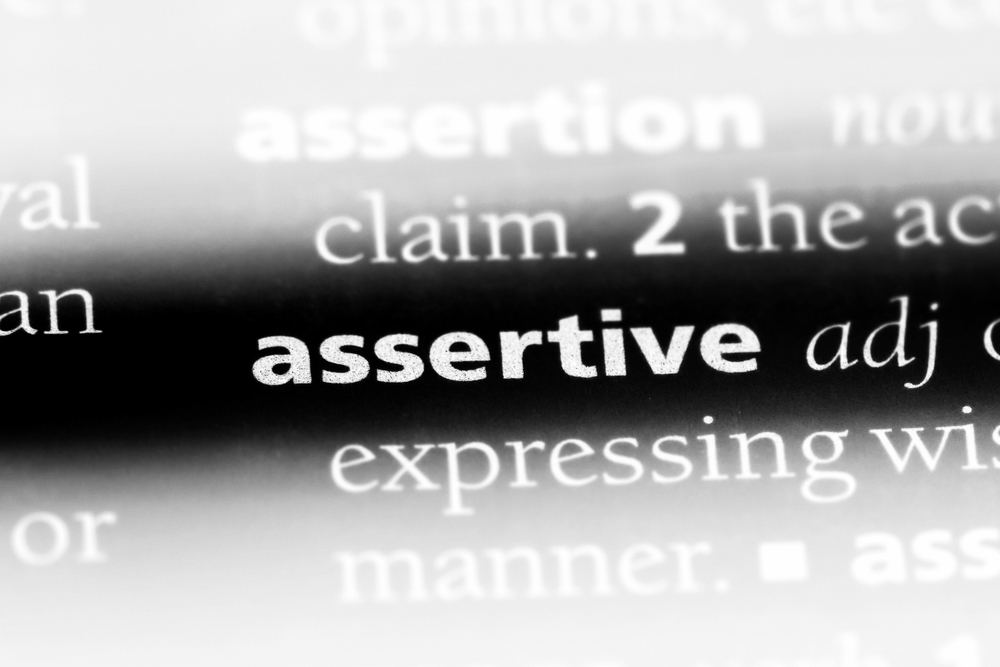The inspiration for this post came after watching Julia Middleton’s TEDx Talk, “Cultural Intelligence: The Competitive Edge for Leaders” (https://www.youtube.com/watch?v=izeiRjUMau4) in preparation to deliver one of our newer courses, “Developing Cultural Intelligence” (https://eanestraining.com/2023/04/developing-cultural-intelligence/).
Kindness is often associated with gentleness, empathy, and generosity. While these qualities are essential, another behavior can have a profound impact on our lives and the world around us: assertiveness.
Assertive kindness is a conscious choice to express compassion, empathy, and understanding while standing up for oneself and setting boundaries. It involves finding a delicate balance between being kind and being assertive, enabling us to make a positive difference in our interactions, relationships, and communities. In this post, we explore the concept of assertive kindness and discuss its significance in creating a more compassionate world.
The Power of Assertive Kindness

Assertive kindness expresses empathy and compassion while valuing our needs and boundaries. It involves communicating clearly, respectfully, and confidently without compromising our values or self-respect. It encourages us to act in considerate ways of others while ensuring we honor our own well-being. Assertive kindness is not passive or submissive; it is an active and intentional approach to cultivating meaningful connections and fostering positive change.
Promoting Healthy Relationships
By practicing assertive kindness, we create an environment that encourages open communication and mutual respect. It allows us to constructively express our thoughts, concerns, and desires, enabling healthier and more fulfilling relationships. Setting boundaries and speaking up when necessary fosters trust and understanding where both parties can thrive and grow.
Resolving Conflicts
Assertive kindness plays a crucial role in conflict resolution. It allows us to address conflicts with empathy, active listening, and a genuine desire to find a mutually beneficial solution. By respectfully asserting our needs and concerns, we encourage others to do the same, leading to more effective communication and problem-solving.
Advocating for Others
Assertive kindness extends beyond our immediate relationships. It empowers us to be advocates for those who may not have a voice or the ability to stand up for themselves. By assertively addressing social injustices, discrimination, and inequalities, we contribute to creating a more just and inclusive society.
Inspiring Change
Kindness, when expressed assertively, can be a catalyst for positive change. Challenging harmful norms and practices brings attention to societal issues and promotes more compassionate approaches. Assertive kindness invites all of us to reconsider our perspectives and actions, ultimately influencing collective behavior and attitudes.
Practicing Assertive Kindness

There are a few strategies that can help you focus on assertive kindness:
Self-Reflection
Take time to reflect on your own needs, values, and boundaries. Understand that it is possible to prioritize your well-being without sacrificing kindness.
Effective Communication
Develop assertive communication skills, such as active listening, using “I” statements to express feelings and needs, and maintaining a respectful tone even during disagreements.
Setting Boundaries
Identify your limits and communicate them clearly and kindly. Respectfully decline requests and delegate tasks to maintain your balance and prevent burnout.
Empathy and Understanding
Approach interactions with empathy and curiosity, seeking to understand others’ perspectives and feelings. Empathic listening allows for genuine connections and a deeper appreciation of other peoples’ experiences.
Taking Action
Use your voice and influence to advocate for causes that align with your values and promote kindness in your community.
Assertive kindness combines the strength of assertiveness with the compassion of kindness. It allows us to navigate relationships and conflicts with empathy, respect, and integrity. By practicing assertiveness kindness in our daily interactions and embracing opportunities for positive change, we can create a more compassionate world where we all feel valued, heard, and understood. Kindness is not a weakness but a powerful energy that can transform lives and shape a brighter and more compassionate future.

